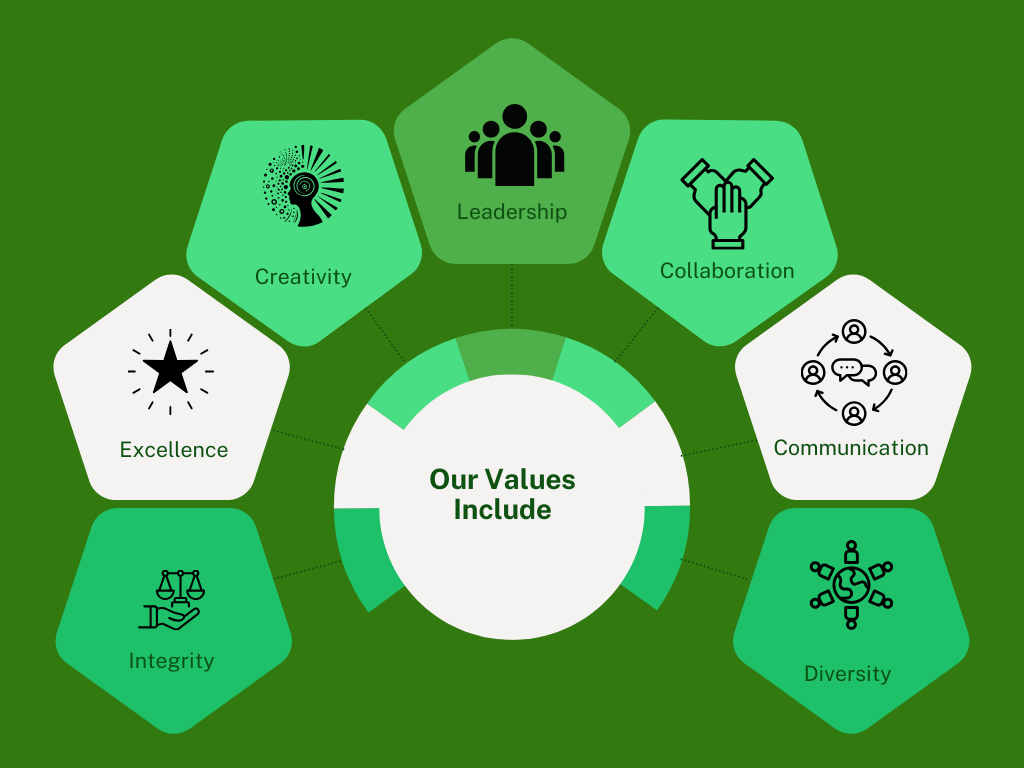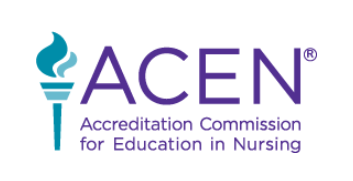About the Nursing Program
Welcome from the Director of Nursing
Dr. Heather Fenton
Director of Nursing
EdD MSN RN
History of the Nursing Program
In spring 1982, NSU offered the first and only stand-alone program designed specifically for registered nurses in the state of Oklahoma—the RN to BSN program. In 2000, the RN to BSN program was the first nursing program in the state to go entirely online. In 2010, the masters in nursing education was added, followed by two additional master’s programs (administrative leadership and informatics) in 2018. The RN to BSN and master’s programs have both maintained accreditation through ACEN and are offered entirely online. Each of the online courses were built using the Quality Matters Standards and rubric.
Mission & Values
The mission of the Nursing Program is to:
Prepare professional nurses who are leaders, excellent clinicians, and lifelong scholars. We empower our graduates to provide health and well-being to diverse patients in the community, state, region, nation, and beyond.

Goals of the Nursing Program
- Facilitate nursing students’ mastery of knowledge and skills essential for professional nursing roles to promote the health of individuals, families, communities and society.
- Prepare graduates to provide safe, evidence-based, patient centered care that reflects increased competency with the cultures and communities served, ethical judgment, and inter-professional collaboration.
- Contribute to the profession of nursing by engaging in leadership, scholarship, and practice activities.
- Prepare nurses for further graduate, post-graduate, and doctoral studies.
|
RN to BSN End of Program Outcomes |
MSN End of Program Outcomes |
|
• Synthesize specialized knowledge and theories from nursing and other disciplines into nursing practice. • Provide care that considers socio-cultural-political determinants of health, illness, and disease; promote health and human flourishing; and address health disparities in vulnerable populations, locally and globally. • Manage population health through effective partnerships and consideration of socioeconomic impact, health policy, advocacy, and preparedness for disasters. • Apply knowledge of systems to work effectively across the continuum of care incorporating cost-effectiveness and application of innovation and evidence-based practice. • Partner with patients and other health care professionals to provide primary health care through health promotion, protection, and restoration, and end of life care. • Apply the nursing process, based on current knowledge and theory, to provide holistic care directly or indirectly to diverse patients across varied environments • Manage information, technology and other resources effectively. • Demonstrate leadership in nursing practice to initiate change and to improve the quality, safety, and outcomes for individuals, populations, and systems. • Build skill development through a spirit of inquiry, critiquing published research, and using available evidence as a foundation to propose creative, innovative or evidence-based solutions to clinical practice problems • Demonstrate professionalism in nursing practice. |
• Synthesize specialized knowledge and theories from nursing and other disciplines into advanced nursing practice to deliver safe, high-quality care to diverse populations. • Construct partnerships with healthcare colleagues and other stakeholders to optimize care, enhance the healthcare experience, and strengthen outcomes. • Analyze existing systems in the practice specialty and make recommendations for improvement. • Integrate knowledge of socio-cultural-political contexts and determinants for health to improve the health of diverse populations within the practice specialty. • Contribute to the science of nursing in the specialty area of practice by applying expanded research knowledge, critique skills and evidenced based practice relevant to the specialty area. • Model excellence as a nursing leader leadership to initiate change and to improve the quality, safety, and outcomes for individuals, populations, and systems. • Analyze the social, cultural, political, legal, and ethical influences that impact nursing practice. • Use information management skills to synthesize knowledge from nursing and related disciplines in the ethical practice of the advanced practice nursing role. • Demonstrate competency of specialized knowledge, skills, and attitudes in advanced nursing practice. • Demonstrate the professionalism required of advanced nursing practice. |
NURSING PROGRAM PHILOSPHY
Northeastern State University is strongly committed to excellence in instruction, to appropriate basic and applied research, to educational outreach and service, and to cultural activities that enhance the quality of life in the region and state. The university's mission is to provide undergraduate and graduate education leading to bachelor degrees, master degrees in selected areas, and a doctoral degree in Optometry. The philosophy and objectives of the Nursing Program are in accord with the mission and purposes of the University. The nursing faculty shares beliefs about the person, environment, society, health, nursing, learning, professional nursing education, and professional role development that form the philosophy of the Nursing Program.
The person is viewed as a unique, holistic, individual worthy of respect and dignity. Each person is an interrelated physical, mental, social, and spiritual system. The person is an experiencing and perceiving individual, family, community, or population who interacts with the environment and is the focus of nursing. Each person, during the dynamic process of development, strives for well-being, is responsible for individual health, and exercises the right of choice regarding health needs.
The Environment reflects two interrelated components. First, the internal environment comprises all the dimensions of the person. Second, the external environment, or everything outside the person, comprises multiple dimensions that affect the person. Patterns of interaction between the internal and external environment make each individual, family, and community unique.
Society, the context of nursing, is dynamic and pluralistic. It is made up of persons who live together as families and communities with their own value systems. Society is characterized by diverse groups and populations. Within groups, the family is the fundamental and most significant unit and is self defined. Patterns of interaction within the family affect the health of individuals, families and communities.
Health is a dynamic state of well-being in which the potential of a person is realized to the fullest extent possible. It is a continually evolving and varying process and state. Health is "an experience that is often expressed in terms of wellness and illness, and may occur in the presence or absence of disease or injury" (ANA Scope & Standards of Practice, 2015, p. 88). Persons are active participants in achieving health. The professional nurse is a role model and seeks to empower individuals, families, and communities to accept self-responsibility and accountability for their own well-being.
Nursing: "is the protection, promotion, and optimization of health and abilities, prevention of illness and injury, alleviation of suffering through the diagnosis and treatment of human response, and advocacy in the care of individuals, families, communities, and populations" (Nursing's Social Policy Statement, 2010, p. 8). Central to the practice of professional nursing is the value of altruism reflected by concern for the welfare of persons. Nursing is a scientific discipline validated through research. The art of nursing encompasses caring and partnering with individuals, families, communities and populations as they strive toward meaningful health. Nursing employs the nursing process with persons in their environments. Nursing assists in the mastery of developmental tasks, knowledge, and skills necessary to promote, attain, and maintain health.
Teaching/Learning: Teaching is a reciprocal exchange of knowledge, beliefs, values, attitudes, and skills that promotes lifelong learning. Teaching is the facilitation of mutual learning that requires partnering, sharing experiences, and creating a collaborative educational environment that fosters critical thinking. Learning is the outcome of teaching that can be reflected in cognitive, affective, and psychomotor domains. Teaching/learning seeks to advance growth through experiences that promote a sense of excitement, curiosity, creativity, and discovery.
Professional nursing education: is the integration of liberal, science and nursing concepts and theories to facilitate acquisition and refinement of knowledge, beliefs, values, attitudes, and skills reflected in cognitive, affective, and psychomotor domains. Based on a philosophical foundation of valuing student success and supporting professional role development, the concepts and theories from nursing and related disciplines form the structure of the nursing curriculum. Professional nursing education prepares students to practice as a professional nurse in diverse roles and settings.
Professional role development is evaluated throughout the nursing educational program. The use of theory and research based knowledge in direct and indirect nursing care and in the formation of partnerships is evaluated. Other skills essential to the development of the nurse as manager and coordinator of care include: autonomy, accountability, critical thinking, decision making, collaboration, collegiality, communication, and advocacy. Experiences are designed to provide an understanding of the nurse as a professional, encourage lifelong learning, incorporate professionalism into practice, and identify with the values of the profession.
American Nurses Association. (2015). Nursing: Scope & standards of practice (3rd ed.). Washington, DC: Author.
American Nurses Association. (2010). Nursing's social policy statement: The essence of the profession (3rd ed.). Washington, DC: Author.
Professional Licensure Disclosure
This program does not prepare individuals for licensure. As a prerequisite for admission to the RN to BSN Program, applicants must be registered nurses or pending completion of the National Council State Boards of Nursing Licensure Exam (NCLEX-RN) or meet eligibility requirements if currently enrolled in a nursing program that leads to an associate degree in nursing.
Accreditation

The Nursing Program is accredited by the: Accreditation Commission for Education in Nursing (ACEN) 3390 Peachtree Road NE, Suite 1400 Atlanta, GA 30326 (404) 975-5000.
The most recent accreditation decision made by the ACEN Board of Commissioners for the Nursing Program is Continuing Accreditation. View the public information disclosed by the ACEN regarding this program at http://www.acenursing.us/accreditedprograms/programSearch.htm

